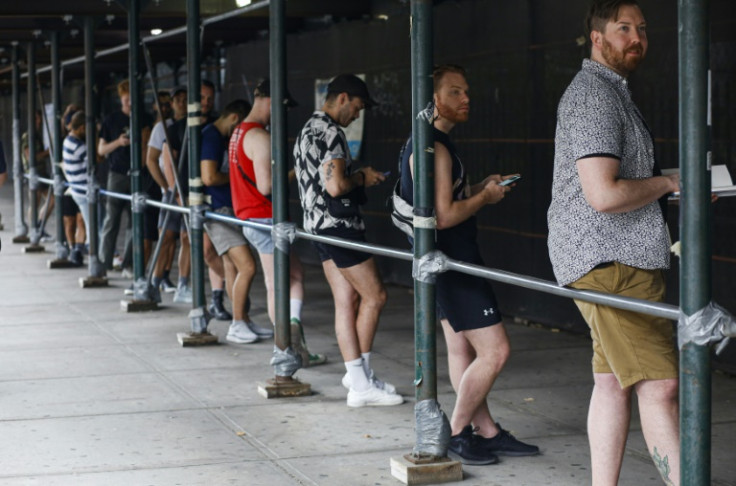Is monkeypox a sexually transmitted infection? Here's why gay and bisexual men should limit their sex partners
Men who have sex with men are at the highest risk of infection right now from monkeypox, according to the WHO.
The World Health Organization recommended Wednesday that gay and bisexual men limit their number of sexual partners to protect themselves from monkeypox and help slow transmission of the rapidly spreading virus.
WHO monkeypox expert Rosamund Lewis stated that men who have sex with men are at the highest risk of infection. She added that about 99% of cases are among men, and at least 95% of those patients are men who have sex with men.
Accordingly, WHO Director-General Tedros Adhanom Ghebreyesus shared that it is crucial for public health authorities to engage communities of men who have sex with men to reduce transmission of the virus and take care of those infected while also protecting human rights by battling against discrimination and stigma.
The WHO chief said, "For men who have sex with men, this includes, for the moment, reducing your number of sexual partners, reconsidering considering sex with new partners, and exchanging contact details with any new partners to enable follow-up if needed."
Generally, monkeypox is not considered a sexually transmitted infection, and it is unknown if it can be transmitted through semen during intercourse. Dr John Brooks, an epidemiologist with the US Centers for Disease Control and Prevention, said, "Monkeypox is not a sexually transmitted infection in the typical sense, but it can be transmitted during sexual and intimate contact."
Dr Linda Yancey, an infectious disease specialist with the Memorial Hermann Health System in Houston, told Healthline, "Monkeypox is primarily a disease of animals, and it can be spread back to them. We are trying hard to get the word out that patients with the virus should have no contact with any animals, wild or domestic, to prevent the virus from getting into local animal populations."
Experts historically thought monkeypox was not easily transmitted between humans, and it remains unclear how it is now spreading more extensively. Some have suggested that the virus may have evolved to become more transmissible. However, genetic sequencing reportedly does not support this hypothesis.
Ghebreyesus called on news organisations, social media platforms and tech companies to counter harmful information that could only fuel the monkeypox outbreak. He stated, "The stigma and discrimination can be as dangerous as any virus and fuel the outbreak. As we have seen with Covid-19 misinformation, and this information can spread rapidly online."
Dr Michelle Forcier, a clinician with FOLX Health, said there is an idea that the monkeypox virus is only spreading among gay and bisexual men. She said, "The monkeypox rumours are harmful because they isolate and seem to 'blame' a particular group of persons for spreading this infection. Calling the monkeypox virus an STI and linking it to our culture's view of sex as scary or shameful may keep persons exposed or infected from getting medical attention."
US Centres for Disease Control and Prevention revealed there are 21,148 confirmed cases of monkeypox worldwide as of July 28, 2022. Of these, 20,804 cases are from countries that have not historically reported monkeypox, while 344 cases are from countries that have historically reported monkeypox.






















